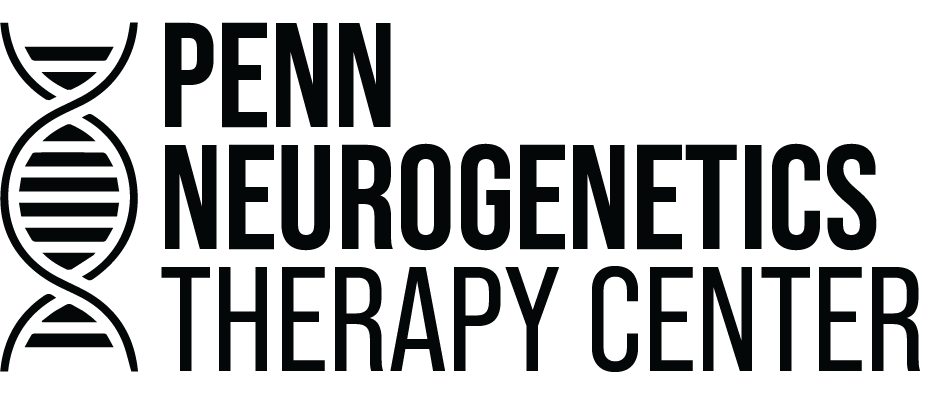Genetic Counseling
Genetic counselors are healthcare providers who meet with individuals who have a personal and / or family history of a condition that can have a genetic cause. Genetic counselors can discuss available types of genetic tests, the potential benefits, and limitations of genetic testing, what types of information can be learned with genetic test results, and what the results could mean for an individual and their family. Genetic counselors also provide emotional support and resources as people adjust to living with a diagnosis or living at risk for a condition. Having an appointment with a genetic counselor does NOT mean a person has to have genetic testing.
The PNTC has one of the largest teams of neurogenetic counselors in the nation, consisting of 5 certified genetic counselors who exclusively meet with adults with a personal or family history of neurological disorders. Our team of genetic counselors also works closely with the PNTC’s 12 neurologists who each have subspecialty interests in various genetic disorders and large clinical practices. We have clinical experts in many conditions – including but not limited to neuropathy, amyotrophic lateral sclerosis (ALS), myopathy, TTR amyloidosis, epilepsy, Parkinson's disease (PD), leukodystrophies, frontotemporal dementia (FTD), ataxias, and Huntington disease (HD). For individuals who are motivated to pursue genetic testing, genetic counselors and neurologists can use state-of-the-art tools such as exome/genome sequencing and other specialized tests, with the goal of making definitive genetic diagnoses for people with suspected inherited neurological disorders.
Our Mission
-
Utilize innovative, data-driven clinical and research efforts to increase access to genetic counseling, testing, and research for patients, families, and providers.
-
Contribute to transformative research, advocate for patients and families, demonstrate the utility of genetic counselors in neurology, and contribute to advancements in the neurogenetics field.
-
Be a source of information and support to both our patients and the greater neurogenetics community as gene therapy trials emerge and evolve.
Do you have a family history of an inherited condition? Are you considering genetic testing to understand your risk of developing health concerns in the future? Making genetic testing decisions that are right for you and your family can be complicated. Learn more about how a genetic counselor can support you through the genetic testing process.
If you would like to schedule a genetic counseling appointment, please call 215-829-6500 and request a neurogenetics visit.
Frequently Asked Questions
There are genetic and non-genetic causes of adult neurologic disease. A genetic counseling appointment can help clarify whether there may be a genetic contribution to the neurologic disease in your family.
We offer genetic counseling appointments for patients who may have a genetic cause for adult neurologic disease, for people who have positive genetic testing for that disease, and for people with a family history of that disease who want to learn about their risk. The goal of genetic counseling is to help you better understand the genetics and inheritance of the disease in your family and/or conditions that may be related, and to help you decide whether genetic testing is appropriate for you and your family. Having a genetic counseling appointment does NOT mean that you must have genetic testing. A genetic counseling visit includes taking a family history, reviewing medical history, explaining how genetic conditions are passed down through families, and discussing genetic testing options including the advantages and limitations of genetic testing. Genetic counselors can also help you find research, support, and advocacy resources that meet you and your family’s needs.
You should bring results from any genetic test you or your relatives have had. Also, because family history can help determine the right type of testing, it can be helpful to gather information about health conditions in the family prior to the appointment. It can also be helpful to know if your relatives have or had problems similar to that of you/your affected family member.
Questions to ask include:
- Who in the family has had neurologic or psychiatric conditions?
- What is their diagnosis or name of their condition?
- What are their symptoms?
- Does/did they have any other health problems?
- What age did they start having symptoms?
- Have they had genetic testing done for that condition?
- What age did they pass away, and what was the cause of death?
Currently, we are offering genetic counseling visits in-person and via telehealth (video visits). There are some restrictions regarding who we can see via telehealth related to which state a person lives in.
Most genetic testing can be done with a saliva or a cheek swab sample, but require that you do not eat, drink, or smoke 30 minutes before sample collection. Some genetic tests require a blood sample, but there is no need to fast prior to having your blood drawn for genetic testing. Results of genetic testing take from a few weeks to a few months to receive, depending on the specific test.
Most insurance plans cover the cost of a genetic counseling visit. The CPT code is 96041. The co-pay depends on both the insurance plan and the length of care, and therefore the exact co-pay may not be able to be determined ahead of the visit.
Most genetic testing is covered by insurance. During the visit, we will work with you to determine the best genetic testing lab(s) to order testing from based on your insurance and the recommended test(s). We will not send out any genetic tests without your permission. We will help you explore options for genetic testing coverage.
The cost of testing depends on what specific testing is done. For this reason, the estimated cost often cannot be determined until after a specific test is recommended based on what is discussed during your visit. The cost of testing may be $0 for you, depending on your insurance and any sponsored testing that may be available at the time of your visit. Genetic testing for adult neurologic disease can cost from around $250 to $3,000 or more. We will not send out any testing without your permission, and in some cases, we can connect you with the billing department of the recommended lab(s).
The Genetic Information Nondiscrimination Act (GINA) is a law that protects against genetic discrimination. Because of GINA, your health insurer cannot use a genetic test result, or family health history, to deny health insurance coverage or decide how much you pay for your health insurance. Unfortunately, GINA does not apply to life insurance, long-term care insurance, or disability insurance. Additionally, GINA does not apply to people who work for the military, or for employers with less than 15 employees. Sometimes, people who are undergoing predictive genetic testing can apply for life insurance before receiving their test results. More information may be found at: http://www.ginahelp.org. We can also discuss these issues at your genetic counseling visit.



